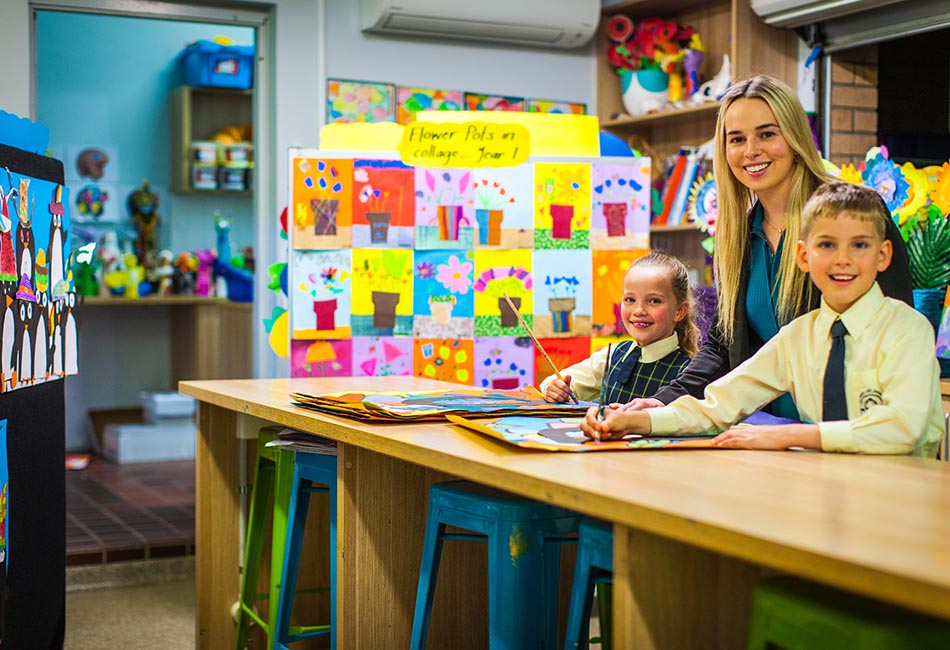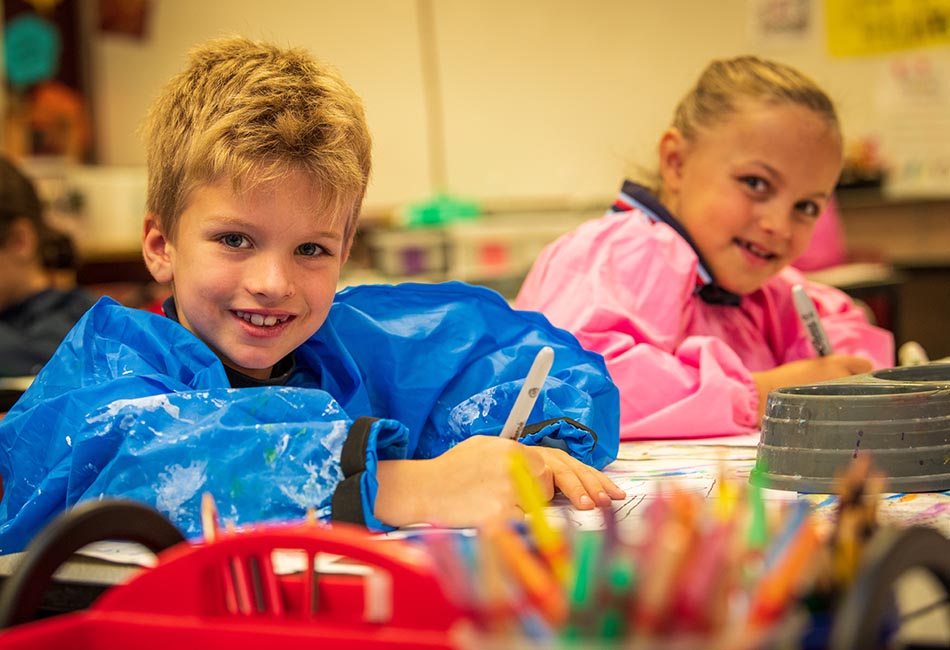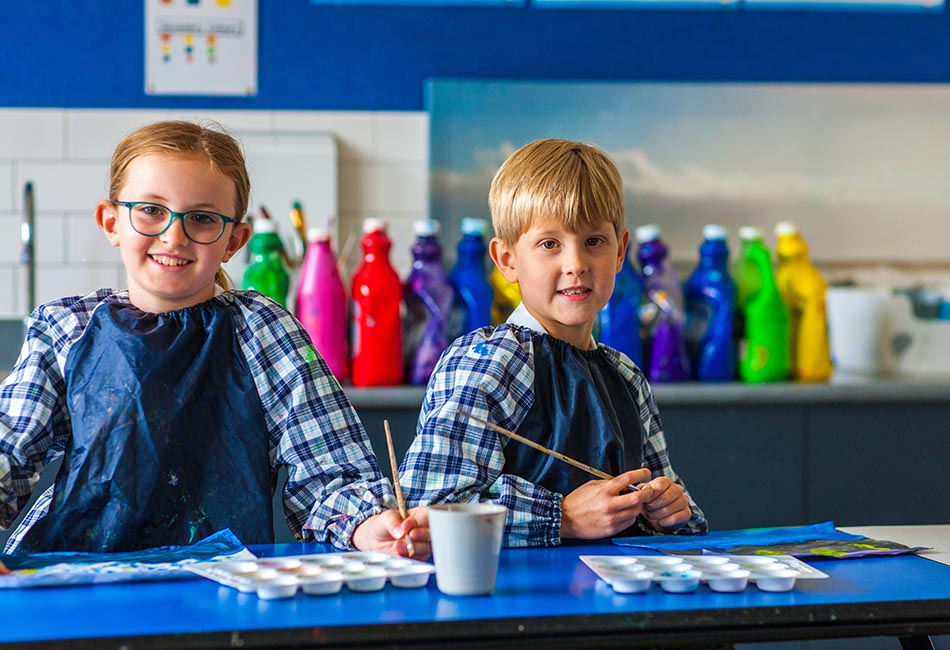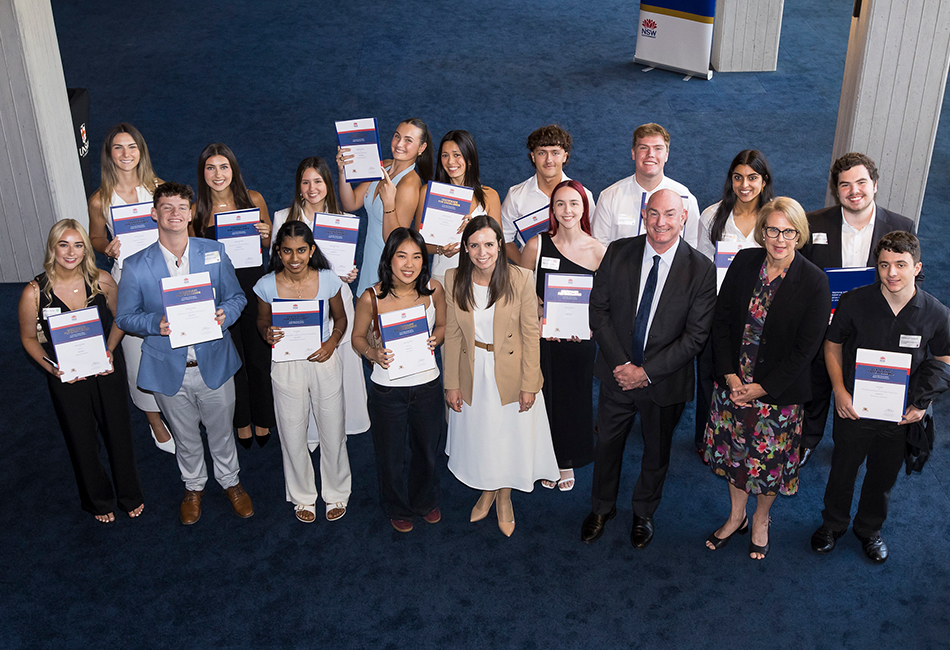Five ways to spark creativity and self-expression in your child!
Are you amazed by your child’s creativity? Do you love seeing their imagination run wild during story-time, making drawings or inventing games? If you’ve wondered how to nurture their creativity while balancing screen time, you’re not alone.
The good news is, nurturing creativity goes beyond developing a young artist; it builds problem-solving, emotional intelligence, confidence, and a strong sense of self. Eva Spata, Supervisor for Performing and Visual Arts Curriculum at Sydney Catholic Schools, shares five simple ways to inspire creativity and self-expression, helping your child grow confident and ready for life’s challenges.
1. A (small) space of their own
Create a special space where your child can freely express themselves. It doesn’t need to be elaborate—just a small corner with art supplies, musical instruments, or costumes. Let them personalise it with their artwork or favourite colours, making it a dedicated spot for creativity.
Eva says: “A creative nook of their own gives children physical and mental space to explore their interests freely. A space to express themselves, no matter how small, can become a welcome retreat where children can develop their ideas without disruption or having to pack up their things mid-project to make way for dinner!”
2. Make time for… nothing!
Give the gift of free time. While structured activities are important, unstructured playtime is where creativity thrives. Give your child the freedom to play without goals or instructions. This kind of free play can even be something you do together with your child. Let them invent games, create stories, or experiment with materials like clay, paints, musical instruments or building blocks.
Eva says: “They may start by saying they’re ‘bored,’ but soon they’ll be creating their own fun! Unstructured play sparks imagination, lets kids explore their interests, and fosters flexible thinking. They can build resilience as they navigate challenges and failures in their creative process.”

3. Creativity as a way of life
Integrate creative thinking into your child’s daily routine in simple ways: writing after school to express their day, making cards for family occasions, or keeping a daily sketchbook. You can also encourage creativity during everyday tasks, like designing a fun dinner menu or inventing stories together before bed.
Eva says: “When art is part of everyday life, children learn to express emotions and ideas they may not be able to put into words. It boosts their emotional intelligence, sharpens fine motor skills, and enhances attention to detail—benefits that carry over into school and beyond.”
4. Open their eyes to the world of art
Spark your child’s creativity by exposing them to different art forms. Visit museums, theatre performances, or concerts together. Exploring the many free galleries and community festivals across Sydney is a perfect low-cost family adventure. At home, introduce them to various music genres and art styles to encourage an appreciation of different artistic expressions.
Eva says: “Exposure to diverse art forms broadens children’s understanding of the world and other cultures, fostering empathy and open-mindedness. It also helps them discover their unique voice by providing a rich palette of inspiration.”

5. Efforts over outcome
It’s often natural for children to strive for perfection in their creative work. Encourage them to keep trying and celebrate the process, not just the final product. Help them focus on the joy of creating, and praise their effort, curiosity, and willingness to experiment, rather than just the outcome.
Eva says: “Creativity is about exploration and growth, not perfection, and the fun is in the doing. Creative play fosters a growth mindset, teaching children that effort leads to improvement and results. This encourages perseverance and a positive approach to learning and challenges.”
You’re already doing a great job supporting your child’s creative growth, and it’s always worth the effort. Nurturing creativity builds essential skills like emotional intelligence, problem-solving, and individuality—key traits for success in any field. The creativity you encourage today lays a strong foundation for their future achievements and happiness.
An emphasis on excellence in all areas of education – from academic to vocational, sport and the arts – helps Sydney Catholic Schools nurture the potential of all students in their 147-strong network of primary and secondary schools.
Click here to find your nearest Catholic school.







